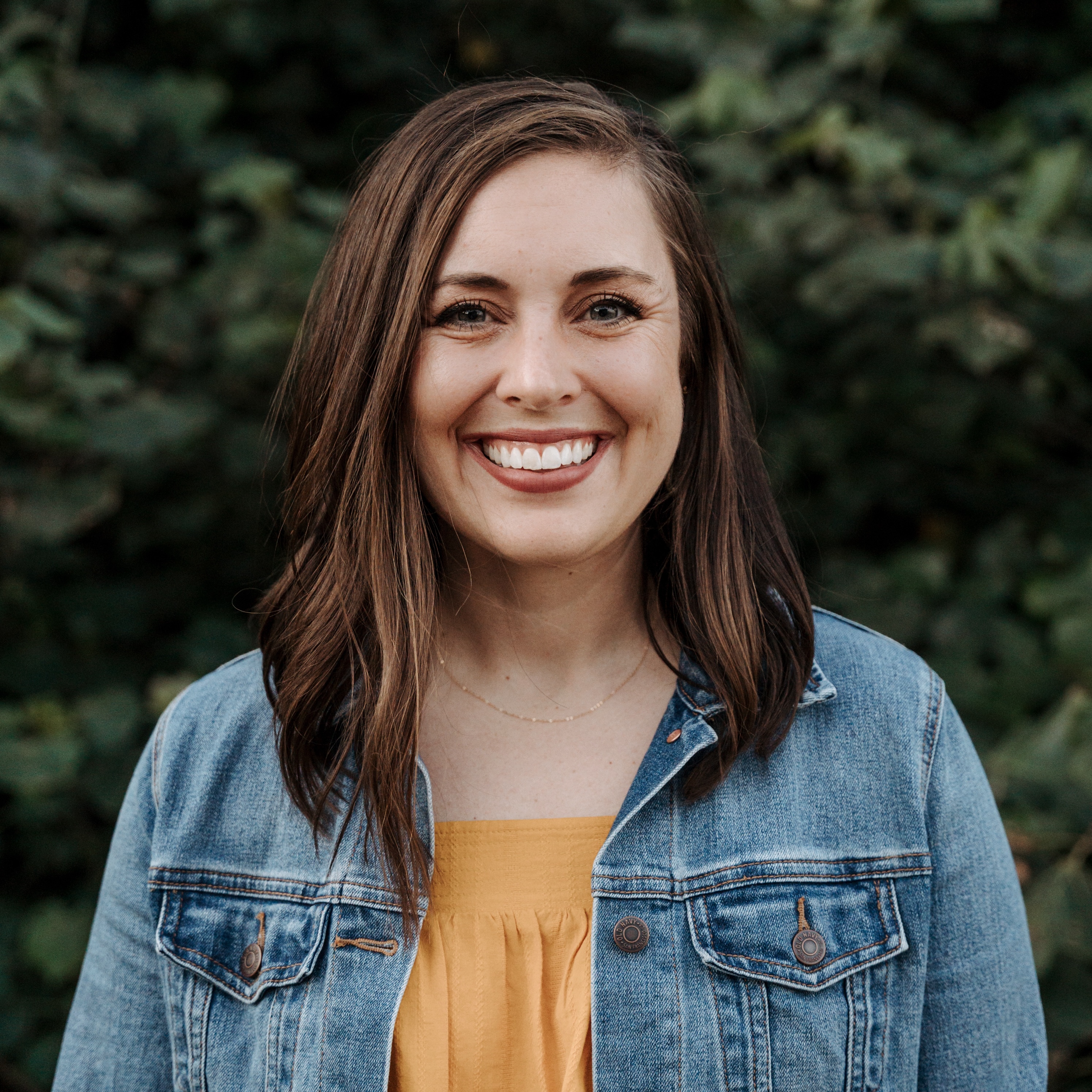Episode Transcript
[00:00:02] Speaker A: Welcome to the Love justice podcast, where we hear from different voices who are joining us in the fight against modern day slavery. Today's episode is part of our Stories edition. Here's your host, Paula Cornell.
[00:00:17] Speaker B: I'm Paula Cornell, and you're listening to a stories edition of the Love justice podcast. Today I want to share the story of a young woman named Durga who grew up in our family homes. Although much of our work at Love justice revolves around fighting human trafficking, we started out as an organization in 2004, caring for orphaned and abandoned children in South Asia through what we call family homes. These homes consist of house parents, a local christian couple, often with their own kids as well, that have dedicated their lives to caring for children and up to ten children that have been orphaned or abandoned. Kids receive love and care from the house parents along with nutritious food, quality education, and the space and freedom to play. Our goal is for each of these children to one day graduate from college and become difference makers for Christ in their communities. Today we operate 15 such family homes across South Asia. Durga, now a bright young 24 year old woman with big dreams for her future, was once one of these children. She came to the family homes when she was eight years old. After living on the streets, she has no memory of her parents.
[00:01:21] Speaker C: I don't remember, but I don't know why. I haven't seen my parents. But when I was strict, I used to live with four girls. They were my friends, but I don't remember about my parents.
It was very hard because like sometimes we do not even get food, even the way acts to the peoples. Sometimes they use scold and they used to beat also.
So that was very hard.
[00:01:46] Speaker B: I was curious to know how Durga made her way from the streets to the family homes. Nowadays, many of the children are referred by various community members. But early on, not as many people knew about love justice. When I asked her how she came to be in the homes, she shared that she was out asking for food when some people stopped and offered her not just food, but an education too. I discovered later on that this was none other than John Molyneux. Love justice is founder and CEO along with a group of visitors.
[00:02:15] Speaker C: I haven't been to villas of my own, but I think I used to roam around like two Easter and like when I was asking food for them. And I fortunately met John Uncles and my sponsor and I was asking them also the food because I was very hungry at that time. And then I made them.
So after that and they said, do you want to study? If you want to study, then I will take you to homes so that you can study. Because when I was traveling, I like to study very much. So whoever said, like, so you want to study? You want to go with me? I will say yes. So I was very interested at starting from the small ages.
[00:02:54] Speaker B: Here's John and his wife Aksha, recalling the night they found Durga on the streets.
[00:02:59] Speaker A: So sometime in around 2009, we had a group of medical students who were visiting us. And we were just going out to dinner one night. And as we were walking through the street on our way to dinner, we saw a group of four girls with dirty clothes who are not wearing shoes and asking for money. And, you know, having worked with street children quite a bit, one of the telltale signs of a child that's truly on the street is not having shoes. And so. And the other thing to know is that girls on the street is very rare because they're very vulnerable. They could easily be exploited by someone, and that would be what would happen in most cases when you have young girls, and these were girls seven or eight years old, not wearing shoes. So we started talking to them and tried to understand their situation. And they said that they were living on the streets. And so it was kind of like an emergency. Like we didn't want them to spend another night on the streets. And so not really knowing what to do, we ended up, I actually just went and stayed in the hotel. And the female medical students that were visiting us ended up staying with the girls in my house for a night. And then the next morning, now my wife, then our child sponsorship coordinator, Aksha, came and met the girls and helped them get cleaned up.
[00:04:17] Speaker D: Yeah. John sent me a message early morning the next day, saying that they have found four girls on the street, little girls, and they were at his apartment and for me to come as soon as I can. So I went there as soon as I got the message in the morning, helped them get cleaned up and made them breakfast. And once they were done eating, and once I got more information from them, which was not a lot except for saying that they were on the street, I took them to the living home, which was one of our newest homes at that time. And the home parents were informed that four girls were going to come to them, and we took them there.
[00:04:58] Speaker B: I asked Durga what it was like to come into the home for the first time after living on the streets for years.
[00:05:05] Speaker C: I think I was very little. And I was very excited because there's a lot of pupils, because when I was a strict, I had only four girls. We were four girls there and when I went to the home there were so many people around me and I was like who are they? And I didn't knew them also. And I was very like where did I came and what I'm gonna do? I was thinking about that. For me it was very difficult because I was a strict children and like to stay in disciplines and rules very hard for me because in a strict we don't use to, we don't have like rules and regression. So that was the most challenging for me because I never like experienced the love of parents when I was at district because I went to strix at I think five or four when I was five or four years old. So I was at a strix and I think I spent more than two years in strixen and coming to home was for me difficult. And the parents went asked what. So I called to them and they said mom and dad. And I was saying mom and dad and like that was very hard for me.
[00:06:09] Speaker B: Unfortunately, even in organizations designed to reflect God's love, human flaws and corruption can still cause some setbacks. When Durga was about twelve her original home parents had to be replaced.
[00:06:23] Speaker C: I think like one day like the staff came and they were for Chekhy, I don't knew but so they found that they haven't given us enough care and they all found that and they came to for checking and they stayed with us for one night and they found that and after that and they changed the parents for us. But we never complained that our parents was this and that several years ago.
[00:06:47] Speaker B: John says several years ago here. But this was actually around 2012.
[00:06:52] Speaker A: We had to change the parents at home because they were not following our policies. And Durga herself really helped us actually navigate that situation and herself provided a sense of stability for other children in the home. And even at a young age just her maturity and kind of strength and trustworthiness was evident through that transition.
[00:07:15] Speaker B: Durga shared about this sweet moment after the home parents had been replaced when she and the other kids exchanged surprise glances when they saw the amount of food the new parents served them.
[00:07:25] Speaker C: I think the surprising thing was because like old Paris, they also give, as I told them, they just not used to give us enough food but when we come to them like they used to give enough food and like when they give, used to give us so many, many many foods and we were looking like each other face and we were surprised because that was for the first time for us like giving more food and like everything and we were very stocked about that and surprising we were licking each other first because we never used to get that. So when we come to them, that was very surprising. Like giving enough food and cares and loves. That was very surprising.
[00:08:02] Speaker B: I asked her what it was like for new children to arrive in the home. Would that be challenging for these kids who had already bonded together to welcome someone new? But her answers seemed to show instead the joy and pride these kids had in being able to share the love of a family with a new childhood who may not have experienced that kind of care before.
[00:08:21] Speaker C: Like, giving them, like, dolls and making, like, bed for them, like making a bed. And we always say, this is for you. And that was, I think, most welcoming. And we used to introduce everybody, like, this is your sister, and this, this everything.
[00:08:39] Speaker B: I also wanted to know what daily life was like and what she liked about growing up in the homes in a family.
[00:08:45] Speaker C: The most, like, interesting thing for us was, like, in a daytime, everybody was busy in their stories works. But at evening, like, we used to gather together and, like, we used to discuss and come together, and that was good time. We look from Bibles and, like, we share from Bibles also the way the parents used to care us, give times and support and encourage in everything, like, as we do the things. So parenting was most, like, important things while living in homes. They were like, very silent keeper. They just not used to talk a lot. But when there's kind this time come, then they used to speak up and, like, encourage us to do the things, like, correctly and if we do the wrong things. And they used to cook good food for us.
And, like, they used to teach us many more about the Bible things also from bibles at devotion time.
[00:09:44] Speaker B: Here's Aksha and John again reflecting on Durga's growth into adulthood.
[00:09:49] Speaker D: I actually didn't think Durga would stay longer. I thought that there was another girl that I thought would actually stay because there's also this high risk of runaway when somebody has been on the street for so long. And when the other three girls ran away, Andruga was the only one. I was very surprised that that happened, but also very happy of who she has become now. And, yeah, so she continued to stay with us and get education and become one of our really trusted older girls that we have in our homes now.
[00:10:23] Speaker A: Yeah, it's been really cool to watch Durga grow over the years. And she always had kind of a quiet fierceness about her, but it kind of goodness, you know, she. So in 2018, we were able to get her birth certificate, which is very difficult to get a lot of times for children that you don't have, you're not in contact with their parents. And that allowed us to get her citizenship which is really crucial for her future. And now she's studying in, she's studying social work. I think she's in her third year and she's just got a bright future. She wants to work with children and just connecting with her recently and just seeing this just quiet strength in her, it's just been really exciting.
[00:11:03] Speaker C: After getting degree from here on, then I thought of doing master in like specific subject. So I have thought of doing clinical social work.
If I get scholarship from within college from like from our university, then if I got scholarship then I will be doing clinical social work. Otherwise I will be earning money and then I'll just help the people, same as me, so that I can support them financially.
I work as a worker within different organizations and so after earning the money from the work that I have been doing, then I will be supporting like one or two persons financially. They were same as me.
Other kids like who has the same history likes me as I'm strictly Lenin.
[00:11:57] Speaker A: So it's just been a great example of seeing somebody come from a place of extreme vulnerability and brokenness and over time and through a lot of love and steadiness to just to see her transformed into this bright, bright, fierce, loving, compassionate young woman. It's just been awesome to watch.
[00:12:19] Speaker B: Jon wrote a letter to staff after hearing Durga share her dreams about helping other children, saying in that moment it felt like everything else we ever did was worthless. Besides, to equip children with the love, care and resources to grow into impressive young adults with dreams of their own difference makers for Christ is essentially to carry our mission of fighting injustice far beyond this organization. Multiplying far into the future.
Each life impacted can impact many more lives.
You can be a part of this impact too. Durgas story is a result of many people coming together to give their time, money or support. Visit our website at lovejustice NGO to learn more about how you can get involved. Thanks for listening.




